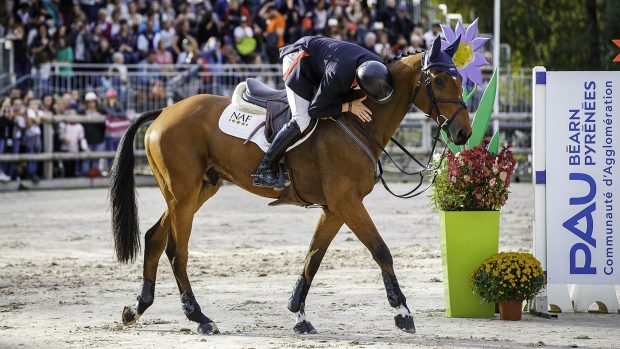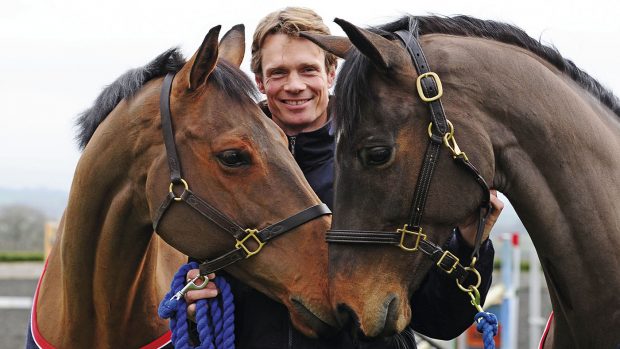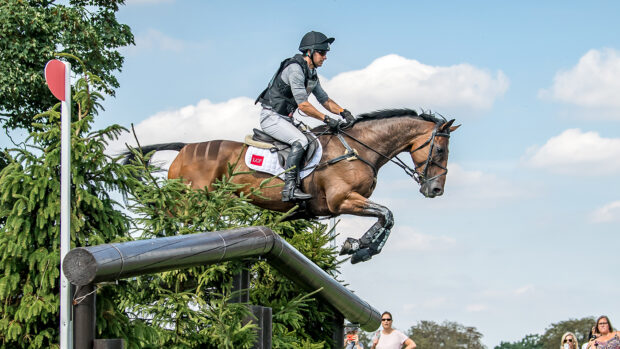Spectators enjoyed some quality dressage performances on the second day of the Mitsubishi Motors Badminton Horse Trials, but despite their best attempts no-one could challenge Andrew Nicholson, who remains at the head of the leaderboard with Nereo.
William Fox-Pitt came closest with Chilli Morning to score 39pen, 1.2pen behind the leader, despite some mistakes. The trot work was a highlight, being smooth, consistent and uphill.
William admitted afterwards: “It’s not one of his best tests he’d done. Unfortunately some tension crept in. You can’t get away with making three mistakes in this field.”

A polished test by Oliver Townend and Armada sees the partnership sitting in third going into cross-country. Oliver rode boldly and Armada was very consistent throughout the test, picking up a nine for his right shoulder-in and the halt before the reinback from the judge at B, who also gave Oliver a nine for his riding. The top three riders were the only ones to break the 40 barrier.
Oliver said: “It’s the best test he’s done at this level. I was very happy with him, but I didn’t expect to be in the top three as there were a number of good horses coming after us.”
Ingrid Klimke produced a polished error-free test from Horseware Hale Bob to earn 40.2pen for fourth place, while Jock Paget sits in fifth and sixth with today’s test by Clifton Lush earning 40.8 to slip ahead of Clifton Promise (41.2).
Paul Tapner and Indian Mill are seventh on 41.9pen while yesterday’s dressage sensation, 20-year-old Niklas Bschorer, is eighth with Tom Tom Go 3 (42.1pen). He is ahead of his compatriot Bettina Hoy, who scored 42.8 with Designer 10, while Ireland’s Aoife Clark completes the top 10 with Vaguely North.
H&H dressage columnist Anna Ross, who provided expert commentary on all the test via the H&H Live service, felt that while the standard of dressage is continuing to improve, some riders were giving away marks unnecessarily.
Anna said: “Inaccurate 8m circles and riding the flying change in the wrong place at the end of the extended canter were common. Riders who rode forward in balance were rewarded by the judges, while many needed to be bolder in the medium and extended canter work to earn higher marks.”



